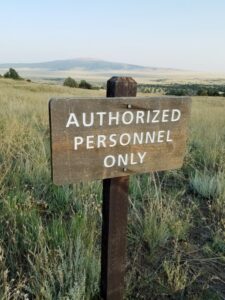
Outside we wear clothing to protect our intimate parts from the looks of others.
At home we have curtains, roller blinds or shutters.
And online?
How to protect yourself from unwanted looks?
Use private search!
Naked or wearing clothes outside?
Would you go outside without dressing yourself?
There are hippie communes or nudist camping spots that allow it or even make it mandatory.
There are also indigenous peoples who are living more or less naked in the wild.
We preferably dress for going outside, not only because of the cold.
During summer it’s often hot enough to walk around naked. No, we usually don’t want that.
We want to protect our bodies from unwanted looks.
Even when we look great and are sexy we only want to show up naked publicly in the rarest cases.
It’s not just fear or shame that forces us to wear clothing.
- We don’t want to get stared at.
- We don’t want others to know intimate things about us.
- We want to keep some things for ourselves and those who love us.
- We can’t trust strangers by default.
- We want to decide about ourselves and what we give away.
These are already a lot of reasons to take care of privacy, don’t you think?
Online always some strangers watch over your shoulder
Online it’s a bit different it seems. Most people use websites like
- Amazon
as revealingly as if there is no tomorrow. We confide our most intimate secrets to them!
While at it there are always strangers who look over our shoulder online!
- We search Google for information about illnesses, symptoms and physical features.
- We share on Facebook with 500 “friends” or “private groups” our baby photos, purchases or when and where we travel.
- We ask Amazon for books, hygiene products or tell it what we read on the Kindle.
Even in case that’s OK for you, it also leads to indiscretions already:
- Google knows that you’re sick even before you go to the doctor.
- Facebook knows when you’re not at home.
- Amazon knows your political affiliation.
Sadly Google does not have professional secrecy. They share your info with advertisers and authorities.
On Facebook not only friends follow you, many photos and updates are more or less public.
Amazon collects data about your preferences, keeps it indefinitely and creates a profile out of it to sell you more.
Private Search vs Google
Google is collecting all your search queries along with manifold other data about you.
The corporation also creates a detailed profile about you to show you matching search results and products.
It’s also as if you would send a postcard to Google every time you search something.
Consider this: did you already ask Google such or similar questions?
- How do I know that I’m pregnant?
- Is itching a symptom of foot fungus?
- What happens after an overdose of sleeping pills?
Would you send these questions on a postcard and risk that employees of the post office read them?
In case not, why do you just send them like that to Google? Private search works differently.
How discreet is private search?
Tin foil can hide your face. Online your identity is much harder to obfuscate though.
Private search works differently than a regular search on Google or Bing.
- A truly discreet search engine like Startpage does not know who you are. You are searching anonymously.
- The question you ask is hidden in an envelope and gets forgotten afterwards.
- Neither the search engine nor the website you visit can locate you.
Google knows who you are, where you live and what you want to know.
Therefore everybody who gets access to your data can find out how healthy or sick you are for instance.
When only one of the three points above is not given a question can be traced back to you in most cases.
You have nothing to hide? Send me a list of your valuables!
Many claim to have “nothing to hide” when it comes to online privacy.
They send an actual list of their valuables to strangers by way of Google, Amazon or Facebook!
Many online purchases start or end at Google.
They are both saved at Google and locally in your “browser history”.
Whoever gets their hands at your computer can easily reproduce what you own. It can often even get read from afar:
This way Phishers can find out at which bank a potential victim is a customer for example.
There are many tricks and even free tools for download:
Employees can even get fired in case they are using the Internet for private purposes during work hours.
Sometimes it’s bad enough if your partner finds out what s/he’ll get as a surprise present.
How is that possible?
When they accidentally take a look at your personalized Google ads or your Amazon suggestions.
These are based on your former queries.
Often Google ads literally follow us – on other non-related websites.
This so-called retargeting as in target is meant to remind you of an offer as long as possible until you finally buy it.
In many cases it’s not enough though to do so to disable them.
The ads remain visible all over the Web after you bought the product.
Why not use Google without the tracking?

Invasive Google ads and tracking cookies can get subdued by ad blockers.
Yet that way we have only removed a symptom – not the cause.
Why not use Google anonymously and privately from the beginning?
That’s the main idea behind Startpage. They make private search possible by inserting a server between Google and the searchers.
Google only receives compiled search queries from Startpage that are not traceable to individual searchers.
In the exact same way the results get routed through this intermediate station back.
This way nobody knows what you searched for.
They don’t track themselves so that they don’t know who you are and they can’t associate search queries with people.
This way they not only have reached the highest level of privacy, they also have kept the quality of search engine results from Google.
The other private search engines that are available by now – think DuckDuckGo or Ecosia – use the somewhat weaker Bing index.
Ecosia by now stopped relying on Microsoft’s Bing. They also use Google and their own index co-created with Qwant.
Startpage can do both: keep secrets and show relevant results.
Even the most important German consumer watchdog Stiftung Warentest confirms it.
It awarded Startpage the best rating with the overall grade B.








